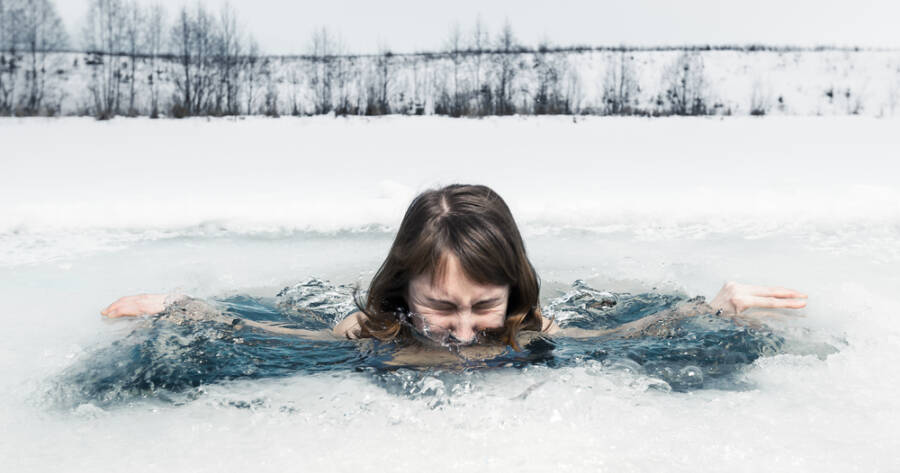Cold water swimming has been gaining popularity in recent years, with more people embracing the idea of taking a dip in chilly waters for both physical and mental health benefits. While the practice might seem daunting at first, the rewards can be significant. From boosting circulation to enhancing mood, cold water swimming offers a unique way to promote overall well-being. Explore the top benefits that come with this invigorating activity.
1. Boosts Circulation and Immune Function
One of the most well-known benefits of cold water swimming is its ability to improve circulation. When you immerse your body in cold water, the blood vessels constrict, causing blood to move more efficiently throughout your body. As your body warms up afterward, the blood vessels dilate, helping to deliver fresh oxygen and nutrients to muscles and organs. This process can support cardiovascular health and improve overall circulation.
In addition to better circulation, cold water swimming has been shown to strengthen the immune system. Exposure to cold temperatures can increase white blood cell count, which plays a key role in defending the body against illness and infection. Some studies suggest that regular exposure to cold water may help reduce the frequency of colds and other common illnesses. Over time, this can make your body more resilient, helping you fend off infections more effectively.
2. Improves Mental Clarity and Focus
Cold water swimming is not only beneficial for the body but also for the mind. The shock of plunging into cold water stimulates the release of norepinephrine, a neurotransmitter that helps to increase focus and mental clarity. This surge of norepinephrine can lead to heightened awareness and improved cognitive function, which makes cold water swimming an excellent way to start your day or refresh yourself during a break.
In addition, the intense experience of swimming in cold water can help clear mental fog. It forces you to focus on the present moment, creating a form of mindfulness. This heightened sense of presence can reduce stress and anxiety, allowing you to approach tasks and challenges with a clearer mindset. Many cold water swimmers report feeling more mentally sharp and less distracted after their swim, which can lead to increased productivity and improved overall mental health.
3. Reduces Stress and Enhances Mood
One of the more remarkable mental health benefits of cold water swimming is its ability to reduce stress and enhance mood. When the body is exposed to cold temperatures, it triggers the release of endorphins, also known as “feel-good” hormones. These chemicals naturally improve mood, reduce feelings of anxiety, and help combat depression. Regular exposure to cold water can lead to lasting improvements in emotional well-being.
Additionally, the process of acclimating to cold water builds resilience. Over time, swimmers become more accustomed to the discomfort of cold water, which teaches the body and mind to handle stress more effectively. This can translate to better stress management in everyday life. Cold water swimming provides a natural way to reset the nervous system, allowing for a calmer, more balanced emotional state.
4. Accelerates Muscle Recovery and Reduces Inflammation
For those who engage in regular physical activity, cold water swimming can significantly enhance muscle recovery. When the body is submerged in cold water, it helps reduce muscle inflammation, which can occur after intense exercise. The cold temperature causes blood vessels to constrict, reducing swelling and promoting faster recovery.
Moreover, cold water immersion has been found to help flush out metabolic waste products like lactic acid, which builds up in muscles after strenuous activity. As the body warms up after the swim, fresh oxygenated blood is delivered to the muscles, speeding up the healing process. This makes cold water swimming a popular recovery tool for athletes and fitness enthusiasts looking to improve their performance and reduce soreness.
5. Strengthens the Mind-Body Connection
Another lesser-known benefit of cold water swimming is its ability to strengthen the mind-body connection. The initial shock of cold water activates the body’s fight-or-flight response, causing an immediate increase in heart rate and blood pressure. This intense physical reaction demands that the body adapt quickly to maintain balance. As a result, swimmers must focus intensely on their breathing and body movements in order to stay in control.
The mental focus required during cold water swimming creates a deep connection between the mind and body. This process can help improve body awareness and promote a sense of calm and control, even during stressful situations. Over time, cold water swimmers often report an increased ability to stay calm in other areas of life, making it a powerful tool for developing mental resilience.
Reap the Rewards of Cold Water Swimming
Cold water swimming offers a wide range of benefits that can improve both physical and mental health. From boosting circulation and immune function to reducing stress and enhancing mood, the practice has the power to elevate your well-being. It also promotes faster muscle recovery and strengthens the mind-body connection, making it a holistic activity for overall health.
While it may take time to get used to the initial shock of cold water, many swimmers find that the rewards are well worth the effort. Whether you’re seeking to improve your physical health, boost your mental clarity, or simply find a new way to manage stress, cold water swimming can provide lasting benefits for your body and mind.

